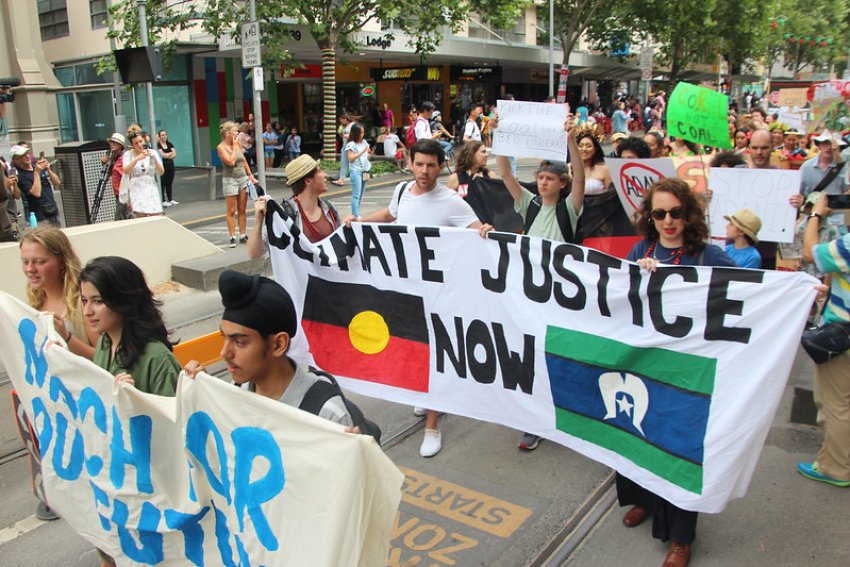
The climate movement has to take up the issues of refugees, war and global inequality to ensure a just climate for all.
The climate crisis is generating instability and a scarcity of resources via rising sea levels and more intense and extreme weather events, such as floods, storm surges and droughts. As a result, we are already seeing the first waves of climate refugees.
The Environmental Justice Foundation estimates more than 150 million people will be forced to leave their homes due to the climate crisis by 2050.
Countries such as Australia need to open up their borders to welcome refugees fleeing climate disasters. Rather than placing asylum seekers in inhumane detention centres, they should be allowed to live in the community and be granted full rights, including access to social support systems.
Scarcity of resources is already leading to conflicts and wars, generating more displaced people in the process.
The imperialist war machines of nations such as the United States and Australia have greatly contributed to the numbers of refugees across the globe. Conflicts driven by the desire to appropriate other countries' resources have meant it is no longer possible for people to continue living safely in their homes.
Military
But the link between the climate crisis and the military of industrialised countries goes much further.
The US military machine is a huge consumer of fossil fuels, among other resources. A recent study found the US military consumes more liquid fuels and emits more carbon dioxide than many medium-sized countries.
In 2014, the US military was the 47th largest emitter of greenhouse gases in the world — and this is before taking into consideration emissions from corporations engaged in producing weapons for the US military.
The US insisted on, and won, an exemption from reporting military emissions as part of its overall greenhouse gas emissions during discussion over the 1997 Kyoto Protocol. The Paris Accord closed that loophole, but the US is set to withdraw from the agreement next year.
In Australia, the government is putting effort into developing a weapons manufacturing industry, with the aim of becoming one of the world’s top 10 weapons exporters.
Imagine if the huge amount of money and resources tied up in maintaining the military and perpetrating wars was diverted to combating the climate crisis and assisting climate refugees from this crisis? The US military budget will reach US$693 billion this year alone.
All of this poses the need for the climate movement to take up the issue of the military.
Global inequality
In a recent article, “Planetary Crisis: We are not all in this together”, Canadian ecosocialist Ian Angus wrote: "Climate change and extreme weather events are not devastating a random selection of human beings from all walks of life. There are no billionaires among the dead, no corporate executives living in shelters, no stockbrokers watching their children die of malnutrition."
This is the reality of the climate crisis. Those who are suffering the most are the people who have contributed the least towards it. Meanwhile, the wealthy within industrialised nations have the money and resources to minimise its impacts on them.
A justice-based response to the climate crisis needs to take into account who bears the lion’s share of responsibility for generating the crisis and ensure they are the ones who are made to shoulder its costs.
Moreover, it has to take into account that industrialised countries owe much of their wealth and resources to the historic and ongoing pillaging of resources from the Global South.
Industrialised countries must repay their climate debt to these countries. Among other things, this must include sharing resources and technology that can help address the many climate-related issues people in the Global South are facing, from extreme weather catastrophes to transitioning their economies away from fossil fuels and mining.
A global aid program, not in the form of loans with strings attached but rather historic reparations, is needed to help the Global South mitigate the destabilising effects of extreme weather events and their consequences, such as the loss of agricultural land and food and water supplies.
Only in this way can we truly talk about winning climate justice for all.